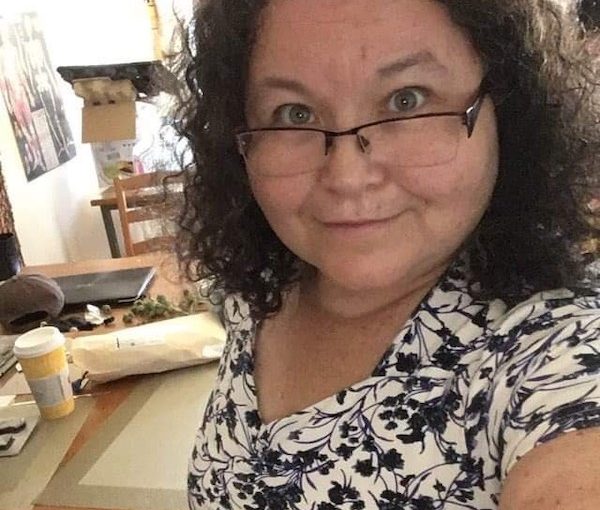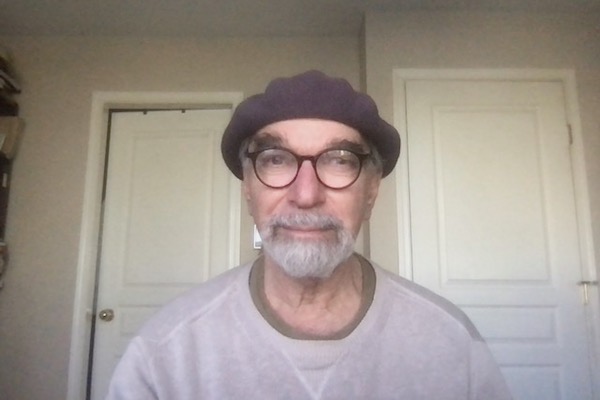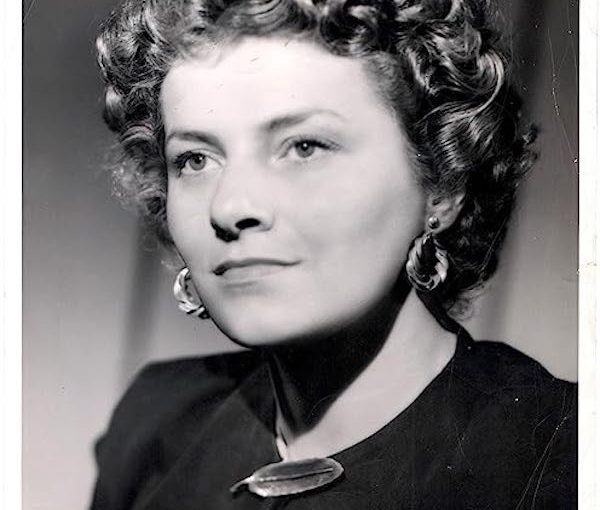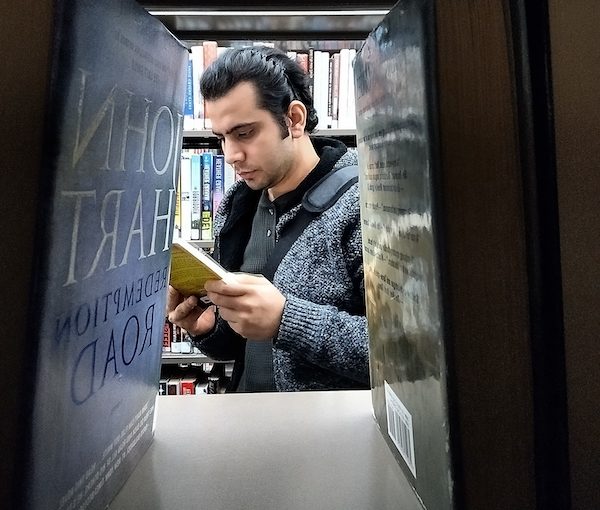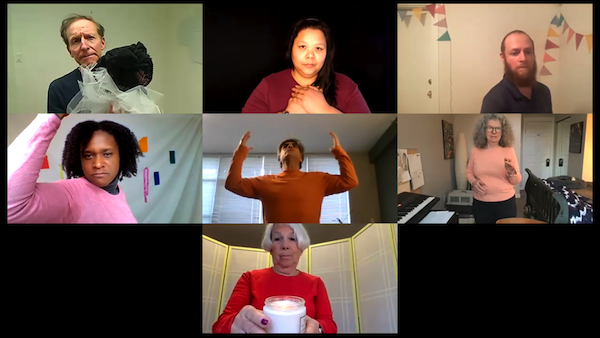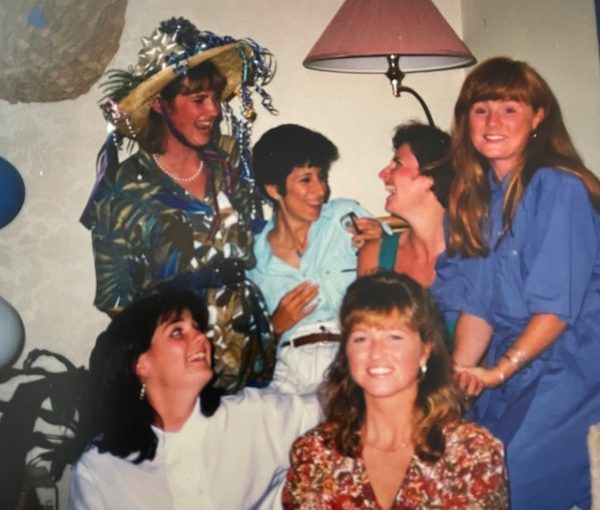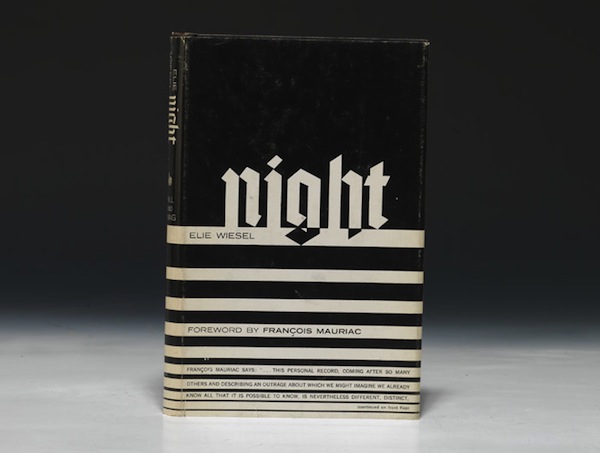Adrianne Fitch is project coordinator for the Vancouver Disability Solutions Network, which is hosting the Mental Wellness for People with Disabilities Forum on Nov. 28 at Heritage Hall in Vancouver. (photo by Adrianne Fitch)
Adrianne Fitch has turned her disabilities into assets. Suffering from severe-to-profound hearing loss and episodes of anxiety and depression throughout her life, she understands firsthand the barriers that people with disabilities face and what could help make life better.
Fitch is project coordinator for the Vancouver Disability Solutions Network, or VDSN, a group of 200 nonprofit organizations and other providers serving people with visible and invisible disabilities. This includes people with physical disabilities, people with a mental health diagnosis, and people suffering from anxiety and depression in a post-COVID world. The network is hosting the Mental Wellness for People with Disabilities Forum on Nov. 28 at Heritage Hall in Vancouver.
“I don’t think the mental health needs of people with disabilities are any different than those of people without disabilities,” said Fitch.
However, depending on the nature of the disability, accessibility can be an issue.
“As someone with a severe-profound hearing loss,” she said, “I would have a really hard time taking part in a group therapy session unless captioning services were available.”
Fitch said many people in British Columbia have faced problems within the mental health system, such as limited access to services, long waiting times, insufficient resources, inadequate service coordination and continuity, and shortages of qualified mental health professionals.
“I think most of us can agree that the COVID pandemic and lockdown resulted in a great deal of isolation and a general decline in mental wellness all over the world.… [W]hen you’re also living with a disability, accessing quality mental health care can be even harder,” she said.
“At the forum, we hope to develop collaborative initiatives to promote mental wellness in our community,” she told the Independent.
Last year’s VDSN forum was on Newcomers with Disabilities. It resulted in a collaborative partnership between MOSAIC and Disability Alliance BC to support immigrants with disabilities receive provincial disability assistance.
At this year’s gathering, Fitch is hoping participants will collaborate to create new mental wellness programming adapted to people with disabilities; extend the reach and impact of what is currently being provided and what could be provided by organizations working together; raise awareness of existing programs geared to mental wellness; and educate families, friends and peer groups on how to support their loved ones to promote mental wellness.
Fitch likes the term “mental wellness” because the term “mental health” is sometimes perceived as medicalizing or stigmatizing something that is universal.
“Our focus for the forum is on improving mental wellness rather than fighting an illness or condition. Whether or not we have an actual diagnosis,” she said, “we can all benefit from practices, strategies and information related to managing our mental wellness.”
In a recent focus group that Fitch led, the people with disabilities participating felt that their mental wellness would be enhanced by exercise and fitness; a place to go to experience spirituality; financial stability; better access to psychiatrists; a compilation of existing services; and education for their families about how to support them.
“I would like to encourage your readers to check in with their friends and family, especially if they show signs that they are struggling with mental wellness,” said Fitch. “Sometimes just knowing you have people in your life who care about you and are ready to lend a hand or a sympathetic ear can make a world of difference.”
Fitch acknowledged that the pandemic was a tragedy, but said it revolutionized her professional life because, for the first time, she could take part in online meetings and events where captioning was provided.
Fitch is a past executive director of the West Coast Mental Health Network, the province’s only completely peer-run organization for people with a mental health diagnosis.
“On a community level, the network allowed me to meet some of the most interesting, compassionate, talented and dedicated people I have ever known,” she said.
The province cut the network’s funding years ago, she said. Today, there are occasional events listed on its Facebook page.
Fitch said she struggles with depression and anxiety but is helped by having many diverse interests, including playing Scrabble, especially with players that are higher ranked than her, and attending folk music festivals.
“On special occasions, like birthdays and anniversaries, I pay tribute to people in my life by writing personalized poetry,” she said, “and I also bake them customized birthday cakes based on their favourite flavours.”
Her other creative hobbies include bead weaving and pottery. She has exhibited her “Creepy Head Menorahs” at the Jewish Community Centre of Greater Vancouver. And, once a year, she likes to write Passover song parodies based on her favourite music, especially songs by the Beatles.
Anyone interested in participating in the Mental Wellness for People with Disabilities Forum on Nov. 28, should contact Fitch at [email protected] or go to eventbrite.ca/e/mental-wellness-for-people-with-disabilities-forum-tickets-723149328107. Everyone is welcome to attend.
Cassandra Freeman is a freelance writer living in Vancouver.

